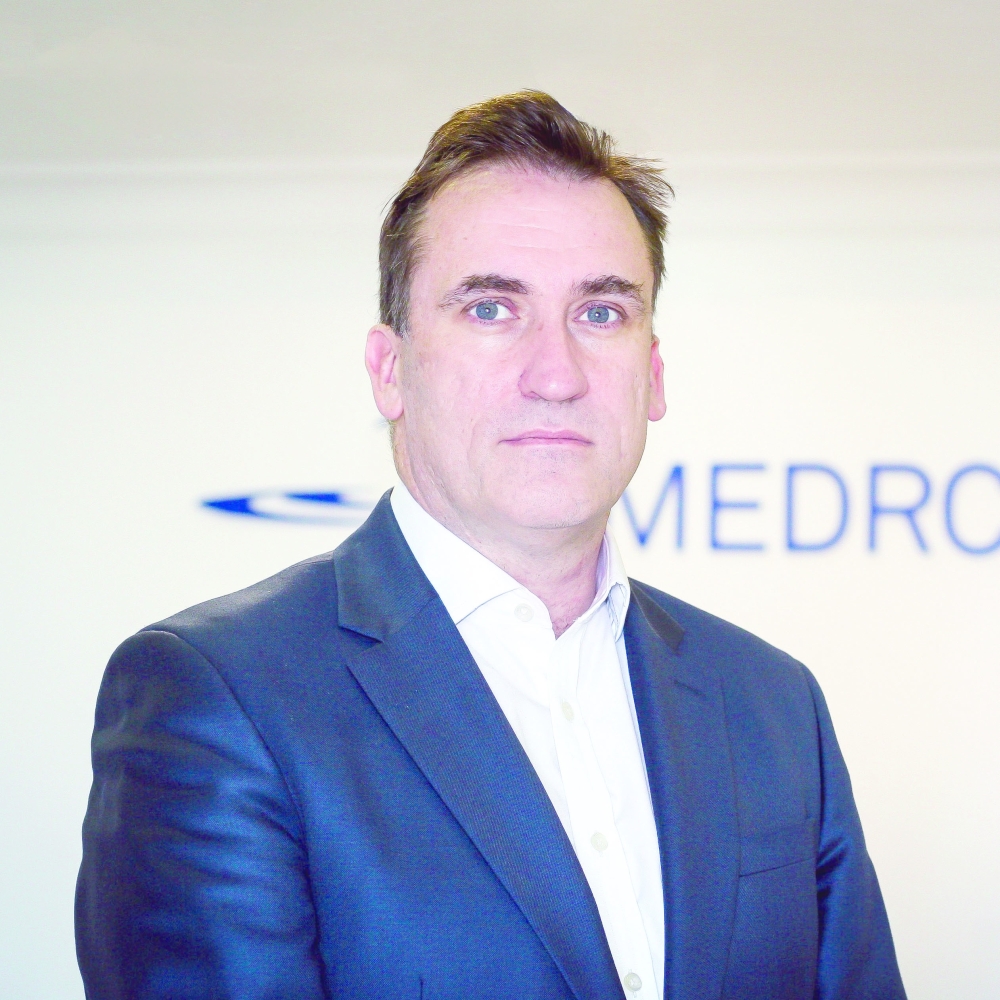

MEDRC has announced the recipients of 3 grants each amounting to $150,000 under its USAID backed Pathway Research Grants in desalination.
The funds are part of MEDRC’s 5-year strategic program launched in 2018 with a goal of driving innovation in small-scale desalination. The program, known as the Oman Humanitarian Desalination Challenge has two tracks of funding – Pathway Research Grants supported by USAID and a $700,000 global Prize Competition, led by MEDRC and Oman’s Ministry of Higher Education, Research and Innovation.
Speaking about the grants, Ciarán Ó Cuinn (pictured), MEDRC’s Center Director said: “Cheap accessible and environmentally sustainable small scale desalination is a humanitarian game-changer. We are proud to work with USAID to deliver new innovative approaches to get clean, fresh water to off-grid, isolated and underdeveloped communities.” The first of the recipients, SolarDew, a Dutch company, has secured funding to research and demonstrate a low-cost membrane distillation desalination process to provide families and off-grid communities with an independent and sustainable source of high-quality drinking water. The system uses innovative manufacturing technologies from the packaging industry to create water purification bags directly integrating solar energy and water purification. This significantly reduces cost and complexity by eliminating electrical components, high pressure pumps and the need for consumables. The system has the potential to double the production rate to 8 litres per square meter per day compared to existing solar stills. The development of the 5th generation multi-layer full-size bags will finalise the design, tooling, production settings and quality control protocols before demonstrating a WaterStation that can produce 120 litre per day. SolarDew’s objective is to produce desalinated water for less than $0.02 per litre and further decrease costs as they scaleup manufacturing.
Found Energy, a startup company in Cambridge, MA USA, has also secured funds for their early-stage research project. They are studying an innovative process using scrap aluminium-based fuel to extract energy by an oxidation reaction with water to power a desalination process. The chemical process produces clean hydrogen gas, heat, and an environmentally benign and valuable aluminum oxyhydroxide byproduct. The hydrogen gas is used in an internal combustion engine to power a thermo-mechanical desalination process. Using their system architecture, the waste heat from the oxidation and engine is recycled for maximizing efficiency. The current design produces 150 liters per day of desalinated water and 1.5 kW of continuous electrical power using a modified generator. A prototype will be designed and evaluated with involvement of stakeholders in the Dominican Republic. The design tools developed during the research are expected to assist in the optimisation of even smaller systems that could be transported by a single person.
The last project awarded was for a later stage research project. MIT’s Global Engineering and Research Laboratory in Cambridge, MA USA in collaboration with Eureka Forbes Ltd in India will be optimizing a point-of-use multi-stage electrodialysis system. This system will be a new competitor to commercially available low-recovery reverse osmosis purifiers in water-stressed lesser developed countries. One of the innovations is the creation of a smaller system using a single pump to drive both brine and dilute streams leading to significant cost reductions. The research will also optimise the packaging, operation and maintenance, system recovery, and design for manufacturing and component selection. If intellectual property arises from this research, the plan is to transfer it to Eureka Forbes Ltd for commercial-scale production at the end of the project.
Oman Observer is now on the WhatsApp channel. Click here


